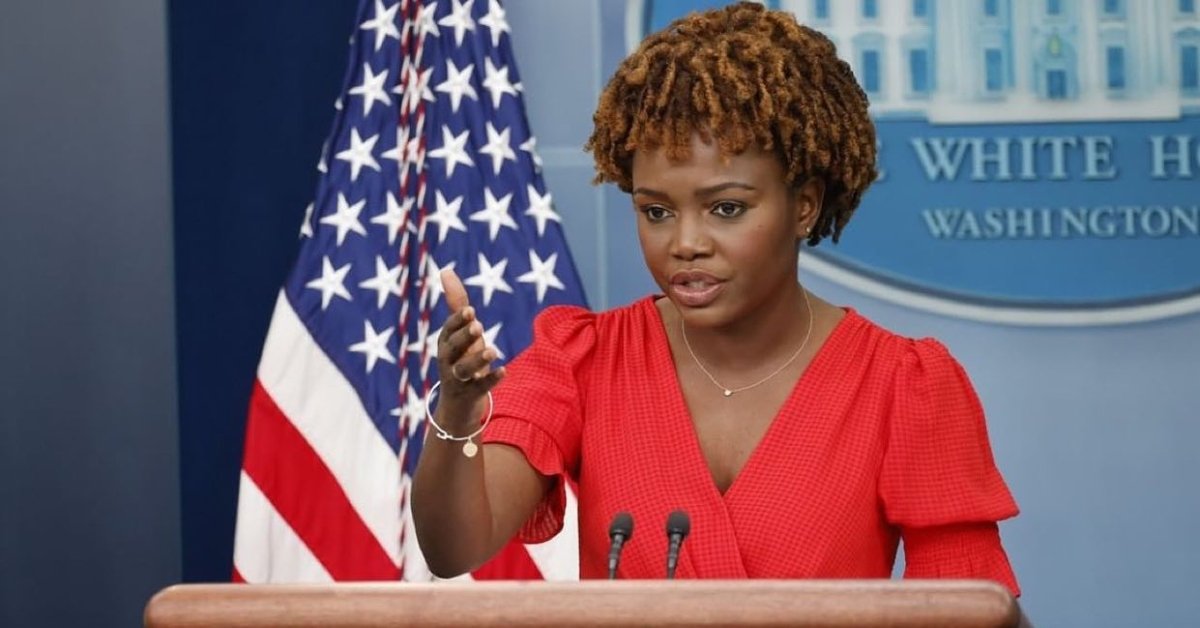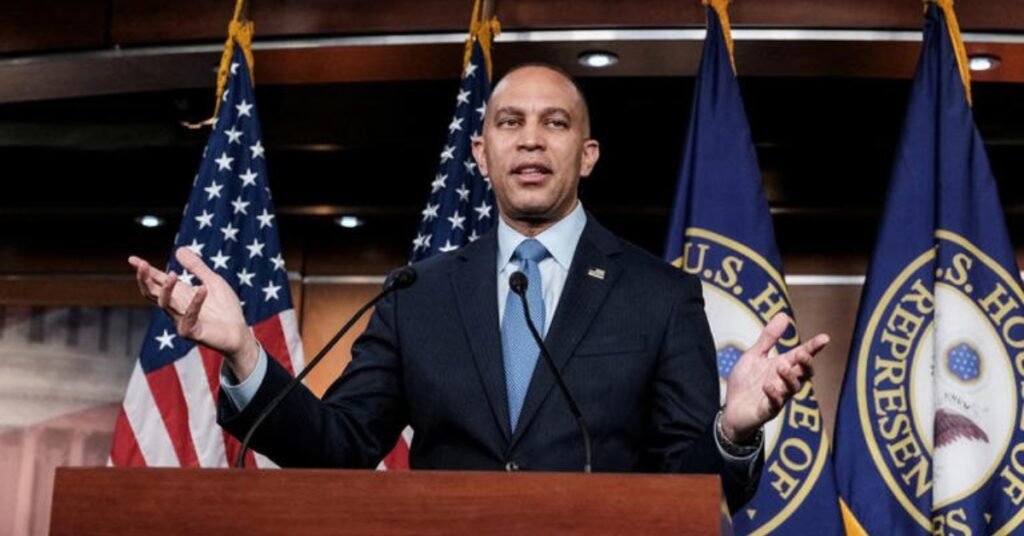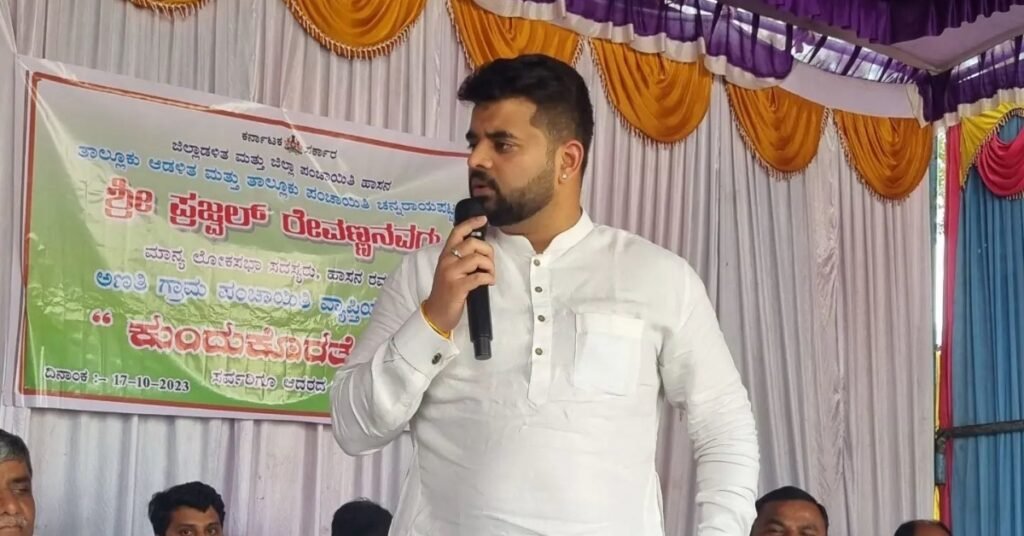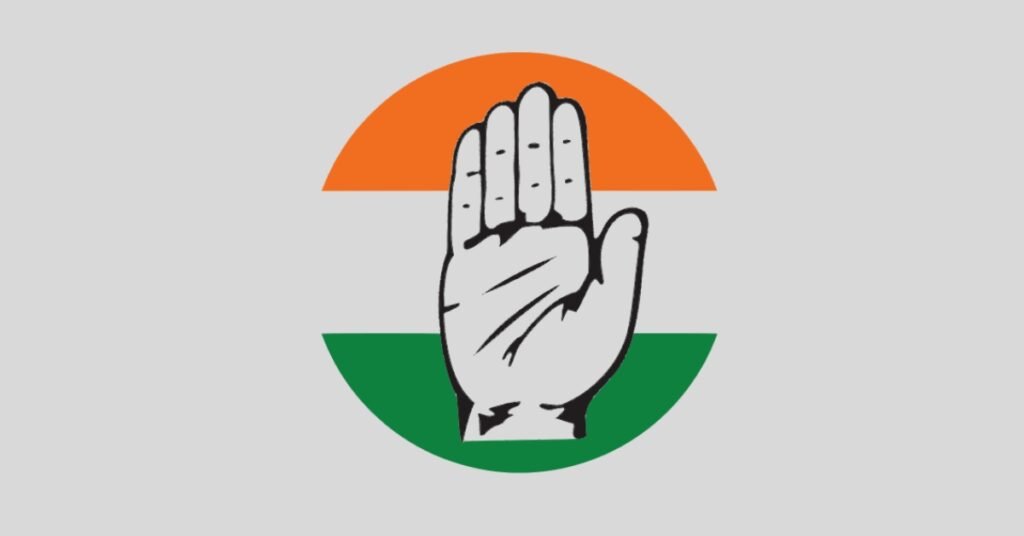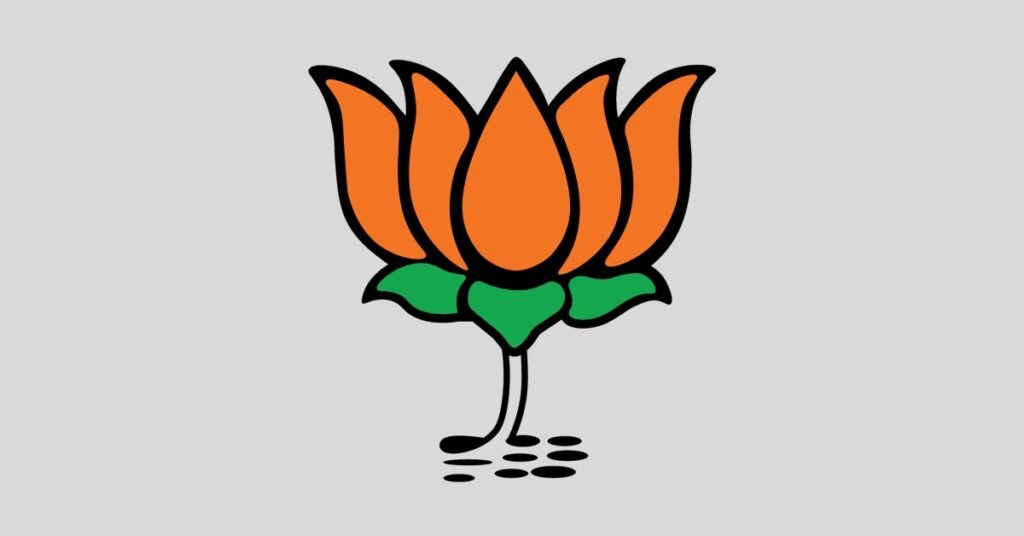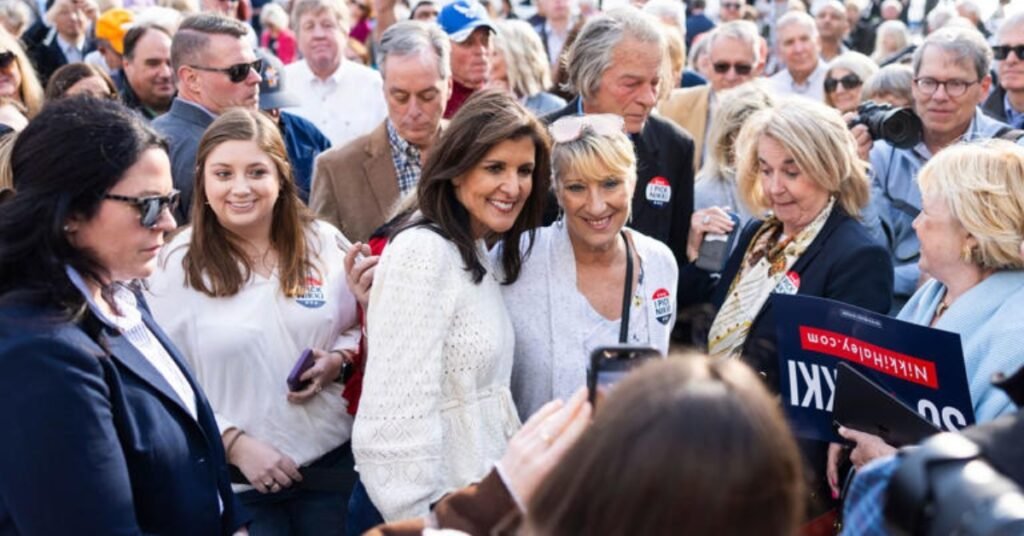White House Press Secretary Karine Jean-Pierre receives warning for violating Hatch Act with “MAGA Republicans” remarks, says federal watchdog. No disciplinary action was pursued.
Table of Contents
Introduction

According to a recent report from an independent federal agency, the U.S. Office of Special Counsel (OSC), White House Press Secretary Karine Jean-Pierre has been issued a warning for violating the Hatch Act.
Jean-Pierre made remarks referring to “MAGA Republicans” during a White House briefing just days before the 2022 election, which prompted a complaint filed by the group Protect the Public’s Trust.
The OSC determined that Jean-Pierre’s statements constituted a breach of the Hatch Act’s restrictions on political activities by executive branch employees.
However, no disciplinary action will be pursued.
Background
The U.S. Office of Special Counsel launched an investigation into Karine Jean-Pierre’s remarks after receiving a complaint from Protect the Public’s Trust, a group led by Michael Chamberlain, who served in the Education Department under the Trump administration.
The complaint accused Jean-Pierre of leveraging her position to advocate against her political opponents and make derogatory comments about Republicans.
The group has asked the OSC to investigate the issue and apply suitable consequences to prevent similar incidents from happening again.
Jean-Pierre’s Remarks
During a press briefing on November 2, 2022, Jean-Pierre referred to “mega MAGA Republican officials” multiple times, even describing them as politicians “who do not believe in the rule of law.”
The term “MAGA” was used four times during her briefing.
Interestingly, President Biden had used the same phrase five times in an earlier speech on October 24, 2022, at the Democratic National Committee Headquarters, encouraging supporters to vote for Democrats and increase the party’s congressional seats.
It is important to note that the Hatch Act does not apply to the president and vice president.
OSC Findings and Action Taken
After its investigation, the OSC concluded that Jean-Pierre violated the Hatch Act, which prohibits executive branch employees from using their authority to influence election results.
However, the agency decided against disciplinary action and issued a warning letter to Jean-Pierre instead.
Ana Galindo-Marrone, who oversees the OSC’s Hatch Act unit, stated that the White House Counsel’s Office did not believe at the time that Jean-Pierre’s remarks violated the Hatch Act.
It remains unclear if the OSC’s stance on using “MAGA Republicans” was ever communicated to Jean-Pierre.
Protect the Public’s Trust published the OSC’s findings after being shared with them, confirming the document’s authenticity.
Karine Jean-Pierre’s Response

When asked about the OSC’s findings, Jean-Pierre characterized the agency’s actions as “retroactive,” highlighting that she was unaware of their opinion when she made the comments.
She clarified that the White House Counsel’s Office is reviewing its position and plans to dialogue with the OSC.
Jean-Pierre also pointed out previous instances where the “MAGA” label was used in the White House, including an official release earlier this year that criticized a budget proposed by the “extreme MAGA Republican” faction in the House known as the House Freedom Caucus.
She noted that not all conservatives perceive the term “MAGA” negatively, citing a congressional candidate who embraced the label during the previous year’s midterms.
Background on the Hatch Act
The Hatch Act is a law that keeps federal employees impartial and nonpartisan.
The Hatch Act passed in 1939 forbids government employees in the executive branch from participating in specific political activities that could sway election results.
The primary purpose of the Hatch Act is to safeguard against the potential misuse of government positions for political gain.
It seeks to maintain a clear separation between government service functions and political campaigns.
The law aims to uphold the principle of fair and nonpartisan governance by imposing restrictions on federal employees.
The Hatch Act prohibits executive branch employees, including those at the White House, from engaging in certain activities, such as campaigning for or against a political party, soliciting political contributions, or using their official authority to influence elections.
The law recognizes that the public’s trust in government institutions can be compromised if employees misuse their positions for partisan purposes.
The U.S. Office of Special Counsel (OSC) is the independent federal agency enforcing the Hatch Act.
The OSC investigates potential violations, receives complaints, and guides federal employees to ensure compliance with the law.
When violations occur, the OSC has the authority to take disciplinary action, ranging from reprimands and fines to removal from office, depending on the severity of the offense.
While limiting political activities, the Hatch Act does not impede federal employees from expressing their personal political beliefs or engaging in political activities in their private capacity.
However, it places reasonable restrictions on their official conduct to uphold the integrity and nonpartisanship of the federal workforce.
By establishing boundaries for political involvement, the Hatch Act seeks to maintain public confidence in the government’s ability to serve the nation impartially and without undue political influence.
Previous cases of Hatch Act violations
The Hatch Act has been scrutinized in the past, with several government officials facing repercussions for violating its provisions.
These cases highlight the significance of adhering to the regulations set forth by the Act.
One notable example is the case of Kellyanne Conway, former counselor to President Donald Trump.
In 2019, the U.S. Office of Special Counsel found that Conway had repeatedly violated the Hatch Act by engaging in partisan political activities while serving in her official capacity.
She publicly endorsed political candidates and used her platform to criticize their opponents.
As a result, the OSC recommended her removal from federal service, emphasizing the importance of maintaining political neutrality in government roles.
Another instance involved former U.S. Health and Human Services Secretary Kathleen Sebelius.
In 2012, the OSC concluded that Sebelius violated the Hatch Act during a speech in which she commented endorsing a political candidate.
While Sebelius reimbursed the government for the expenses of her political travel, the incident reminded her that even high-ranking officials must exercise caution when engaging in political activities.
These cases, along with others, demonstrate that the Hatch Act applies to individuals across different levels of government and serves as a safeguard against the misuse of public positions for political purposes.
The enforcement of the Act is vital in upholding the principles of fairness, neutrality, and transparency within the civil service, ensuring that public officials maintain the public’s trust by staying impartial in their official duties.
OSC’s Role and Authority

The U.S. Office of Special Counsel (OSC) plays a crucial role as an independent federal agency responsible for upholding the civil service’s integrity and enforcing the Hatch Act’s provisions.
The OSC’s primary mission is to protect federal employees from prohibited personnel practices and ensure the fair and impartial operation of the government.
Concerning the Hatch Act, the OSC has the authority to investigate potential violations of the Act by executive branch employees.
It receives complaints from individuals or groups who suspect federal employees have engaged in political activities that breach the Act’s restrictions.
The OSC conducts thorough and impartial investigations to determine the validity of the allegations and whether violations have occurred.
Once an investigation is complete, the OSC can take appropriate action in response to confirmed Hatch Act violations.
The range of disciplinary actions can vary based on the severity of the offense and the circumstances surrounding the case.
Potential consequences include reprimands, fines, suspension, demotion, or removal from federal service.
Furthermore, the OSC provides guidance and advisory opinions to federal employees regarding the interpretation and application of the Hatch Act.
This ensures that employees clearly understand the Act’s provisions and can fulfill their professional duties while remaining compliant with the law.
The independence of the OSC is critical to maintaining the credibility of its investigations and enforcement of the Hatch Act.
It operates separately from other government agencies, allowing it to carry out its duties impartially and without political influence.
This independence reinforces the importance of fair governance and the need to uphold the principles of nonpartisanship in the federal workforce.
By overseeing compliance with the Hatch Act and taking appropriate actions when violations occur, the OSC helps to safeguard the integrity of the civil service, maintain public trust in government institutions, and promote a fair and level playing field for political activities within the executive branch.
Conclusion
The recent violation of the Hatch Act by White House Press Secretary Karine Jean-Pierre has brought attention to the importance of adhering to the regulations that aim to maintain the impartiality of federal employees.
The Hatch Act, enacted in 1939, prevents government officials from engaging in political activities that may influence election outcomes and ensures the integrity of the civil service.
The U.S. Office of Special Counsel (OSC), an independent federal agency responsible for enforcing the Hatch Act, investigated Jean-Pierre’s remarks and concluded that she violated the Act.
However, instead of pursuing disciplinary action, the OSC issued a warning letter to Jean-Pierre, considering that the White House Counsel’s Office did not initially believe the Hatch Act prohibited her remarks.
This case sheds light on the role and authority of the OSC in investigating Hatch Act violations.
The agency receives complaints, conducts impartial investigations, and takes appropriate action when violations are confirmed.
Its mandate is to protect the civil service from prohibited personnel practices and ensure the fair and impartial operation of the government.
Understanding the Hatch Act and its enforcement is essential for maintaining the public’s trust in government institutions.
Previous cases, such as that of Kellyanne Conway and Kathleen Sebelius, have underscored the significance of upholding the Act’s provisions and the potential consequences of disregarding them.
As the White House Counsel’s Office reviews its position and engages in dialogue with the OSC, this incident prompts a broader discussion about political language use and the boundaries of partisanship within the executive branch.
It highlights the ongoing need for federal employees to maintain political neutrality in their official roles, separate from personal beliefs or affiliations.
The Hatch Act safeguards against using government positions for political gain, aiming to ensure fair and nonpartisan governance.
Upholding its principles promotes transparency, fairness, and public confidence in the civil service’s ability to serve the nation impartially.
Moving forward, a continued emphasis on understanding and complying with the Hatch Act will contribute to maintaining the integrity of the civil service and upholding the public’s trust in government institutions.
FAQs
What is the Hatch Act?
The Hatch Act is a U.S. federal law enacted in 1939. Its purpose is to prevent federal employees, particularly those in the executive branch, from engaging in political activities that could influence election outcomes. The law aims to maintain the integrity of the civil service and ensure nonpartisanship in government operations.
Who enforces the Hatch Act?
The U.S. Office of Special Counsel (OSC) is the independent federal agency enforcing the Hatch Act. The OSC investigates potential violations, receives complaints, and provides guidance to federal employees regarding compliance with the Act.
What are some examples of prohibited political activities under the Hatch Act?
Prohibited political activities include using official authority or influence to interfere with or affect the result of an election, engaging in political fundraising, actively campaigning for or against a political candidate or party, and soliciting political contributions while on duty or in the workplace.
What happens if someone violates the Hatch Act?
If a violation of the Hatch Act is confirmed, the U.S. Office of Special Counsel (OSC) has the authority to take disciplinary action. Consequences can range from reprimands and fines to suspension, demotion, or even removal from federal service, depending on the severity of the offense.
Are all federal employees subject to the Hatch Act?
Most federal employees, particularly those in the executive branch, are subject to the Hatch Act’s restrictions. However, there are some exceptions. For example, the President and Vice President are exempt from the Hatch Act’s provisions. Additionally, certain positions deemed u0022confidentialu0022 or involving policymaking may have more limited restrictions.
Can federal employees express their personal political beliefs under the Hatch Act?
Federal employees are generally allowed to express their political beliefs as private citizens. The Hatch Act restricts their official conduct to maintain political neutrality and ensures they do not use their positions to endorse or oppose political candidates or parties.
Can the Hatch Act be amended or changed?
The Hatch Act can be amended or modified through legislation. Changes to the Act require congressional approval, and any proposed amendments would go through the regular legislative process before becoming law.
Can state and local government employees be subject to similar regulations?
While the Hatch Act specifically applies to federal employees, similar regulations exist at the state and local levels. These regulations may vary from state to state, and employees should consult their respective state or local ethics commissions or offices for guidance on political activities.
Get our best stuff sent straight to you! Join our WhatsApp Channel.
